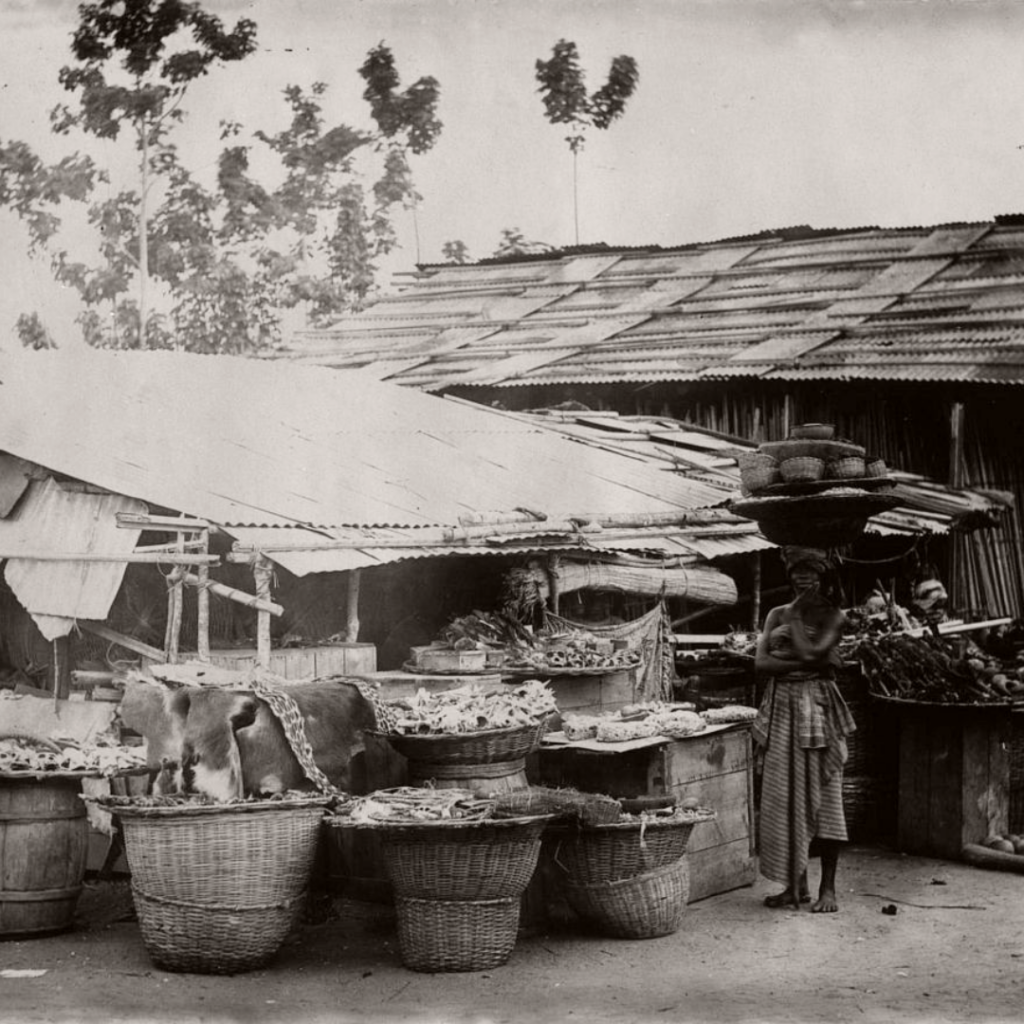Buxton Books is proud to be the bookseller for the Charleston Library Society as they welcome Dr. Kim Cliett Long for a discussion of her new book, The First Marketplace: Africa’s Role in Shaping World Trade. For tickets and more information, please click here.
Global economic connection is and has been crucial to society since its beginnings. But where were those beginnings? The continent of Africa and its marketplaces stood as the formative center to world trade long before most economies were established. Shared through the lens of an introductory course in African marketplaces, The First Marketplace: Africa’s Role in Shaping World Trade offers a clear overview of vital connections of maritime routes off the Swahili Coast. Join historian and author Dr. Kim Cliett Long and artist Jonathan Green to explore the often overlooked history of international commerce and trade.
About The First Marketplace: Africa’s Role in Shaping World Trade:
Africa’s role in global trade isn’t a brief footnote. For centuries, African marketplaces formed the lifeblood of economies spanning continents. Many have heard about Ancient Egypt’s agriculture and the gold caravans of Mali, but there’s more to the story. The Swahili Coast evolved into a powerhouse of maritime routes, linking Africa with Asia, the Middle East, and beyond. These connections fostered a remarkable exchange of goods, ideas, and art—leaving a lasting impact on world trade. The First Marketplace: Africa’s Role in Shaping World Trade offers a clear overview of these vital connections. Developed by the Jonathan Green Maritime Cultural Center at the University of South Carolina Beaufort, this textbook introduces readers—especially middle school students—to forgotten or overlooked narratives of African influence. Its lessons invite critical thinking about Africa’s art, music, and architecture. Readers discover how African designs shaped global aesthetics and how trade routes cultivated cross-cultural ties. There are exercises and interactive questions designed to deepen comprehension. They spark discussions on how ancient commerce affects modern economic systems. Dr. Kim Cliett Long also addresses the harsh realities of human enslavement in global trade networks. She acknowledges the historical complexity of these systems while stressing Africa’s enduring legacy as a dynamic force in commerce. Her focus on presenting multiple perspectives helps students grasp the interconnectedness of world civilizations. Readers come away with an appreciation for Africa’s relevance to economics, culture, and innovation.
About Dr. Kim Cliett Long:
Dr. Kim Cliett Long is a distinguished historian, author, and Project Administrator for the Jonathan Green Maritime Cultural Center at the University of South Carolina Beaufort, where she spearheads initiatives celebrating African and African American maritime art, history, and culture. Her pioneering contributions to African Maritime History have been recognized through inclusion in The HistoryMakers, the world’s largest oral history archive of African Americans who have made significant contributions to American life, history, and culture during the 19th, 20th, and 21st centuries. The HistoryMakers oral history archives are housed at the Library of Congress. Dr. Long’s latest publication, The First Marketplace: Africa’s Role in Shaping World Trade, offers readers a comprehensive exploration of Africa’s profound impact on global commerce and economic history. Also, an accomplished expert in distance and online learning, Dr. Long has notably advanced educational technology and virtual learning methodologies, significantly enhancing access and inclusivity in higher education. Beyond scholarly research, she has been actively engaged in the community, notably co-hosting events such as the Market Matriarchs Tea alongside renowned artist Dr. Jonathan Green, celebrating Charleston’s trailblazing women entrepreneurs. Dr. Long’s dedication to illuminating Africa’s rich heritage and her expertise in digital education firmly position her as a leading voice in her fields.
About Jonathan Green:
Jonathan Green is an internationally acclaimed artist and cultural historian whose work centers on the lives, labor, and legacies of African-descended maritime communities across the globe. A native of South Carolina’s Lowcountry and steeped in the Gullah-Geechee tradition, Green brings a unique cultural perspective to his vibrant portrayals of coastal life—celebrating the strength, self-sufficiency, and spiritual resilience of people whose livelihoods are bound to the sea. His art honors communities that have historically sustained themselves through fishing, farming, boat building, weaving, and trade, drawing parallels between African maritime cultures in the Americas, the Caribbean, Africa, Asia, and the Pacific. Green’s expansive vision highlights the global contributions of African and Afro-descended peoples to maritime industries, cultural exchange, ecological stewardship, and the preservation of coastal economies. Beyond his canvas, Green is a powerful advocate for environmental conservation, historical inclusion, and the global recognition of African diasporic knowledge systems. His work fosters cross-cultural dialogue and inspires new understandings of how art, history, and sustainability intersect in coastal communities around the world.

